Related Research Articles

The roots of the culture of Israel developed long before modern Israel's independence in 1948, and traces back to ancient Israel. It reflects Jewish culture, Jewish history in the diaspora, the ideology of the Zionist movement that developed in the late 19th century, as well as the history and traditions of the Arab Israeli population and ethnic minorities that live in Israel, among them Druze, Circassians, Armenians and others.
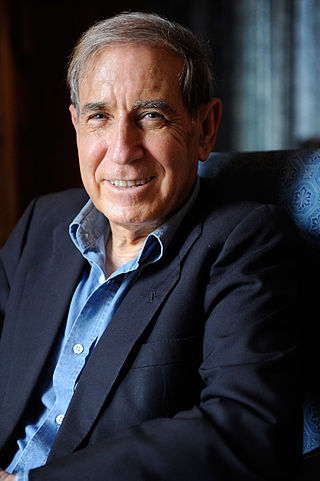
Shlomo Ben-Ami is a former Israeli diplomat, politician, and historian.
Simon Halkin was a Jewish poet, novelist, teacher, and translator. He died in 1987.

Anita Shapira is an Israeli historian. She is the founder of the Yitzhak Rabin Center, professor emerita of Jewish history at Tel Aviv University, and former head of the Weizmann Institute for the Study of Zionism at Tel Aviv University. She received the Israel Prize in 2008.

The Moshe Dayan Center for Middle Eastern and African Studies is an Israeli think tank based in Tel Aviv, Israel, focused on the contemporary study and analysis of the Middle East and Africa. Its stated primary mission is to serve as a resource for decision makers and the public at large, both in Israel and internationally, though it differentiates itself from other similar organizations by refraining from recommending specific policies outright.
Brenda Shaffer is an American scholar who holds positions as Fellow with the Atlantic Council and professor at University of Haifa. Shaffer was the former research director of the Caspian Studies Program at Harvard Kennedy School and past president of the Foreign Policy Section of the American Political Science Association. She specializes on energy in international relations and energy policy in the Caspian region and has written or edited several books of these topics, including "Energy Politics" and "Beyond the Resource Curse." Shaffer has also written a number of books on the topic of identity and culture in the Caucasus including explorations of Azeri literature and culture. She has been accused of lobbying for Azerbaijan and failing to disclose conflicts of interest. According to the 2019 book Lobbying in the European Union: Strategies, Dynamics and Trends, published by Springer: "research shows that her [Shaffer's] entire career has benefitted from financial support from sources tied to Azerbaijan's leadership".
Dan Schueftan ) is an Israeli academic and chairman of the National Security Studies Center at the University of Haifa. He also serves as a senior lecturer at Haifa University's School of Political Sciences. He has taught at the Israel Defense Forces National Security College and the IDF's Command and Staff College.

The Van Leer Jerusalem Institute (VLJI) is a center for the interdisciplinary study and discussion of issues related to philosophy, society, culture, and education. The Institute was established in to create a body of knowledge and discourseto give expression to the wide range of disciplines and opinions in Israel. The contribution of a core of renowned scholars facilitates the implementation of reforms and new approaches in various social spheres.

Itamar Rabinovich is the president of the Israel Institute. He was Israel's Ambassador to the United States in the 1990s and former chief negotiator with Syria between 1993 and 1996, and the former president of Tel Aviv University (1999–2007). Currently he is professor emeritus of Middle Eastern History at Tel Aviv University, distinguished global professor at New York University and a distinguished fellow at the Brookings Institution.
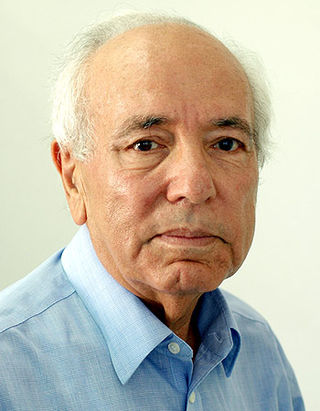
Sasson Somekh was an Israeli academic, writer and translator. He was professor emeritus of Modern Arab Literature at Tel Aviv University.
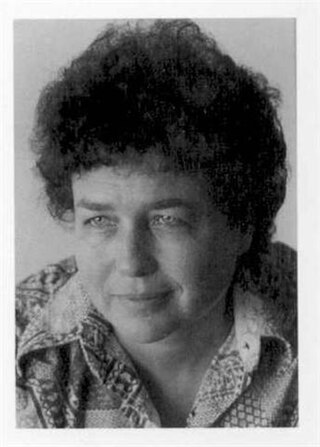
Ruth Kark is an Israeli historical geographer and professor of geography at the Hebrew University of Jerusalem. Professor Kark is a well-known researcher and expert in the field of the historical geography of Palestine and Israel.
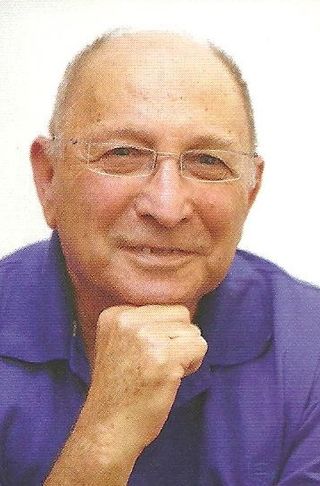
Haggai Erlich is professor emeritus at Tel Aviv University and an academic adviser at the Open University of Israel where he is the head of Middle Eastern History studies. He is the Landau Prize recipient for 2010 in African Studies.

Sami Shalom Chetrit is a Moroccan-born Hebrew poet an inter-disciplinary scholar and teacher, and Israeli social and peace activist.
Shabtai Teveth was an Israeli historian and author.
Joseph Ginat was an Israeli anthropologist, author, political advisor, and soldier.

Zohar Amar is a professor in the Department of Land of Israel Studies at the religious-Zionist Bar-Ilan University, whose research specialties are: natural history in ancient times; the identification of the flora of the Land of Israel and identification of the fauna of the Land of Israel according to descriptions in classical Jewish sources; the material culture and realia of daily life in the Middle Ages as reflected in agriculture and commerce; the history of medicine and ethno-pharmacology. His research integrates diverse fields of knowledge, including branches of natural science, history, archaeology, linguistics, and Judaic studies.
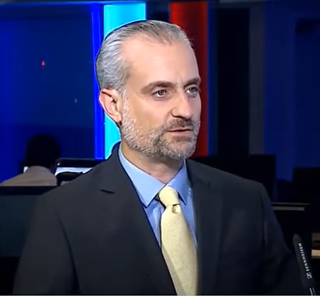
Dr. Emmanuel Navon is a French-born Israeli political scientist, author and foreign policy expert who serves as CEO of the Israeli office of ELNET and who lectures at Tel-Aviv University. He is a senior fellow at the Jerusalem Institute for Strategy and Security (JISS) and a senior analyst for i24news.
Abraham Nahum Polak was an Israeli historian, a professor at the Tel Aviv University since its inception, professor of medieval history and founder of the department of Middle-Eastern History. His main areas of research were Jewish history, Arab history, nations of Islam and Africa and the history of the Khazars.
Jonathan Frankel was a historian and writer. He was a lecturer at the Hebrew University of Jerusalem from 1964 to 1985, and a professor between 1985 and 2004.

Radical Islam: The Iranian Mojahedin is a book by historian Ervand Abrahamian about the late 20th-century political history of Iran, and a thorough case study of the People's Mujahedin of Iran (MEK). The book also includes a short biography of Ali Shariati and a review of his works in order to explore the influence this had on the group's early ideological traits. The book was a duplicate publication by I.B. Tauris and by Yale University Press, being first published by the former in 1989 in the United Kingdom. It is widely regarded as an important academic source on the MEK.
References
- ↑ Alfred, Charlotte (10 April 2015). "Four Israeli Experts Discuss Bibi, Iran And The Nuclear Negotiations". The Huffington Post. Retrieved 20 June 2016.
- ↑ "Prof. David Menashri assesses Iran's strategy under President Rouhani - BICOM". BICOM. 17 October 2013. Retrieved 20 June 2016.
- ↑ "Tehran can be pragmatic, but that doesn't mean it's moderate". The Jerusalem Post | JPost.com. Retrieved 2016-06-07.
- ↑ "A conversation with David Menashri on Iran | Cover Story". Jewish Journal. 4 December 2013. Retrieved 2016-06-07.
- ↑ "David Menashri, PhD". Scholars for Peace in the Middle East. Retrieved 2016-06-07.
- ↑ "David Menashri, Dept of Middle Eastern & African History". Tel Aviv University.
- ↑ Jaffe, Maayan (11 January 2013). "The 21st-Century Iranian Jew". Baltimore Jewish Times. Archived from the original on 20 September 2015. Retrieved 20 June 2016.
- ↑ "David Menashri, PhD". Scholars for Peace in the Middle East. Retrieved 2016-06-07.
- ↑ "A conversation with David Menashri on Iran | Cover Story". Jewish Journal. 4 December 2013. Retrieved 2016-06-07.
- ↑ "Winter Program Faculty". College of Law and Business. Archived from the original on 2018-02-27. Retrieved 2016-06-07.
- ↑ Pugwash (2013-11-06). "David Menashri". Pugwash Conferences on Science and World Affairs. Retrieved 2016-06-07.
- ↑ "David Menashri". www.international.ucla.edu. Retrieved 2016-06-07.
- ↑ Rosen, Barry M. (1995-01-01). "Review of Iran: A Decade of War and Revolution". Iranian Studies. 28 (1/2): 114–115. doi:10.1080/00210869508701831. JSTOR 4310934.
- ↑ Faghfoory, Mohammad H. (1991-01-01). "Review of The Iranian Revolution and the Muslim World". Iranian Studies. 24 (1/4): 87–90. doi:10.1080/00210869108701759. JSTOR 4310765.
- ↑ Mehran, Golnar (1995-05-01). "David Menashri, Education and the Making of Modern Iran (Ithaca, N.Y.: Cornell University Press, 1992). Pp. 352". International Journal of Middle East Studies. 27 (2): 259–260. doi:10.1017/s0020743800062036. S2CID 161439055.
- ↑ Evered, Kyle T. (1999-01-01). "Review of Central Asia Meets the Middle East". Middle East Studies Association Bulletin. 33 (2): 229–230. doi:10.1017/s0026318400039845. JSTOR 23062458. S2CID 165013917.
- ↑ Takeyh, Ray (2001-01-01). "Review of Post-Revolutionary Politics in Iran: Religion, Society and Power". International Affairs. 77 (4): 1016–1017. JSTOR 3095658.